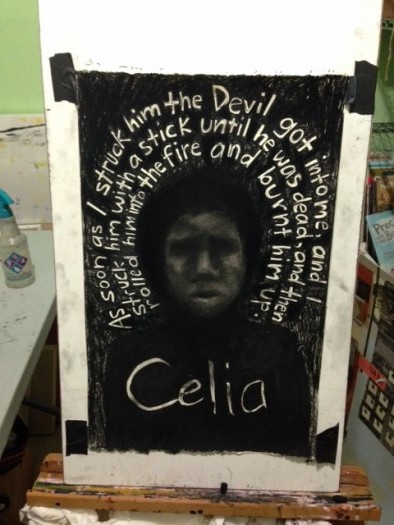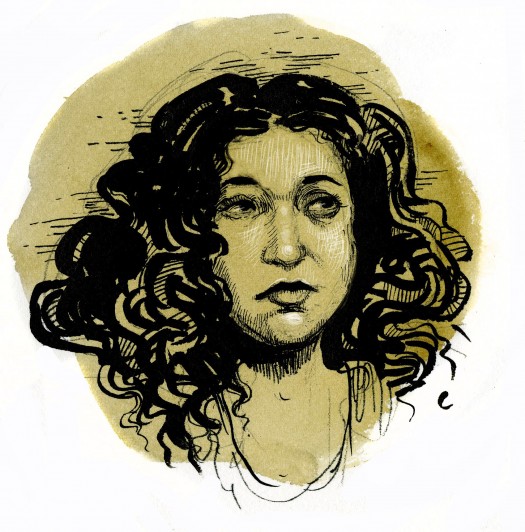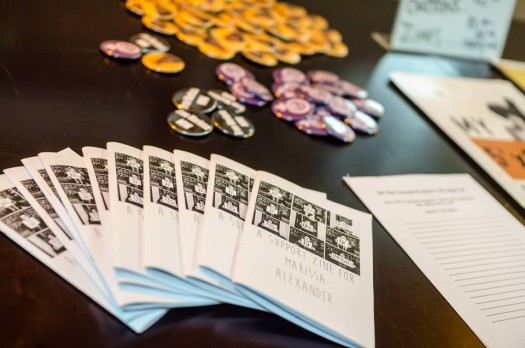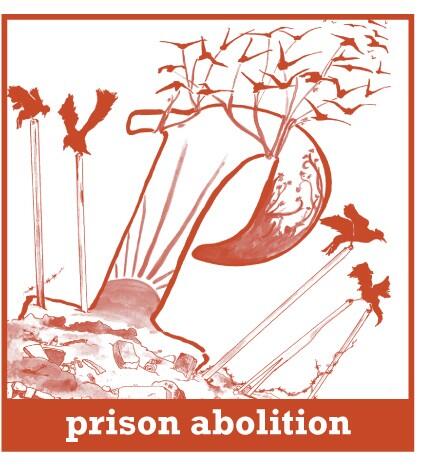On the Eve of The ‘No Selves’ Exhibition Opening…
It’s been a long and exhausting week so far. I haven’t gotten home before 9 p.m for three days straight. There’s a lot happening. I am excited that the “No Selves to Defend: Criminalizing Women of Color for Self Defense” exhibition opens at Art in these Times tomorrow evening.
I spent Tuesday evening into the night with my friends Rachel, Billy, and Ash putting the finishing touches on the exhibition. I am very proud of what we’ve created. The “No Selves to Defend” exhibition is an outgrowth of the anthology by the same name.
Both projects were inspired by Marissa Alexander. More specifically, they are inspired by her consistent and constant admonition to also focus on the cases of other women who have been and are currently criminalized for invoking self-defense against violence. As I thought about her desire to lift up other women’s stories, the idea to create a document that would highlight other cases was born. The exhibition is simply an extension of this idea.
A lot of people are responsible for making both the anthology and exhibition a reality. I look forward to the opportunity to thank them all at Friday’s opening.
For those who visit the “No Selves” exhibition, you’ll see that it opens with the story of Celia.
On June 23 1855, after enduring five years of sexual violence, Celia, a 19 year old Missouri enslaved woman killed her master, Robert Newsom. Newsom was a 60 year old widower who purchased Celia when she was 14. On the day of her purchase, he raped her on the way to his farm.
By the time she killed Newsom, Celia already had two of his children and was pregnant with a third. She had started a relationship with one of Newson’s male slaves named George who became her lover. George insisted that she end her sexual liaison with Newsom if they were going to continue in their relationship.
Celia approached his daughters and implored them to ask their father to end the sexual assaults. No one could or would protect her and so she confronted Newsom herself when he came to force yet another sexual encounter. She clubbed him to death and then burned his body in her fireplace.
Her court-appointed defense lawyers suggested that a Missouri law permitting a woman to use deadly force to defend herself against sexual advances extended to slave as well as to free women. In spite of this vigorous defense, the court disagreed with the argument and Celia was found guilty of murder and sentenced to death by hanging.
After an appeal of the case failed, Celia was hanged on December 21, 1855.
Reading Celia’s story many years ago, I began to crystallize my thoughts about the fact that women of color (black women in particular) have never had “selves” to defend. It is fitting then that Celia would introduce the exhibition.
I asked my friend the supremely talented artist Bianca Diaz to create a visual interpretation of Celia for the exhibition. Since there are no photographs of Celia, Bianca had to rely on her imagination. Below is what she created which will be on display. It is haunting and beautiful.
So, if you find yourself in town tomorrow at 6 pm, you are invited to the opening of the ‘No Selves to Defend’ exhibition. It will run until mid September at Art in these Times located on the second floor of 2040 N Milwaukee Ave. Chicago, IL 60647. The gallery is unfortunately not wheelchair accessible. Looking forward to seeing some of you on Friday!





